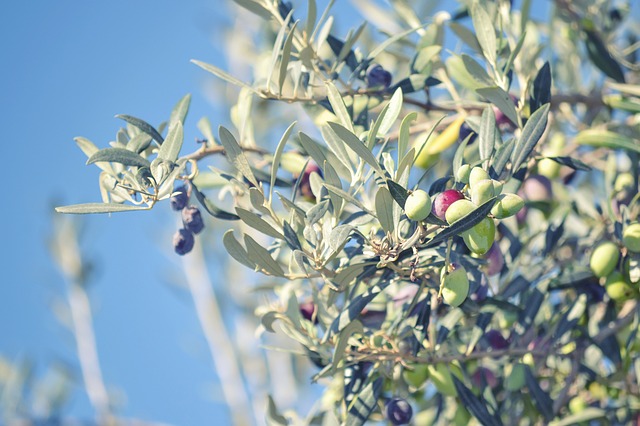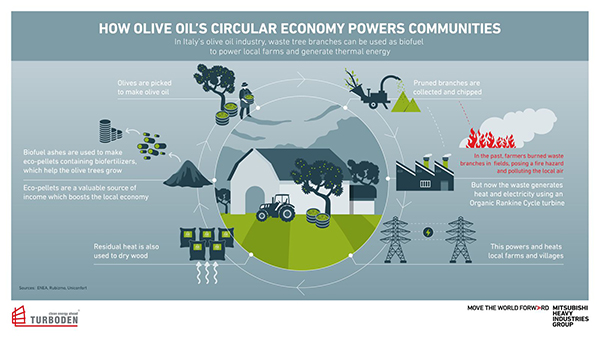
Turning Olive Tree Branches Into Biofuel For Clean Energy
10.04.2020The road to sustainable farming is not just about saying goodbye to pesticides and chemical fertilizers and going organic. In the olive-oil producing region of Puglia in Southern Italy, olive farmers are converting agricultural waste into a source of clean energy*.

Branches cut down during the olive harvest are collected from farms surrounding the small town of Calimera and turned into wood chippings. The chippings are used as a biofuels that feed the boiler of a local power plant. But unlike other biomass power plants, this system does not use the hot water from the boiler to drive a steam turbine.
Instead, the water passes through a heat exchanger, which contains a separate fluid with a lower boiling point than water, operating in a closed loop. The resulting vapor drives an Organic Rankine Cycle (ORC) turbine, rotating at a relatively slow RPM. This system can generate power from lower temperatures, making it more energy efficient.
These turbines produce both heat and electricity to power homes, farms and businesses across the entire local municipality of Calimera.
Alongside electricity generation, the plant exploits residual heat from burning biofuel to dry other wood residues and produce wood pellets.
Ashes from the burned chippings are used to make eco-pellets containing biofertilizers, which complete the cycle by helping fertilize the olive fields for a new crop and provide additional income for the local economy.
About AgriWasteValue
The aim of the AgriWasteValue project is to transform agricultural residues from the European North-West regions into bioactive compounds in order to use them in key industrial sectors such as the cosmetic and nutraceutical fields and then in a second phase in the energy, chemical and agricultural fields.
Ultimately, the cuttings recolted in North-West Europe, from vineyards and orchards, could also be a source of clean energy.
*Article originally written by Johnny Wood, Forbes - April 1, 2020
